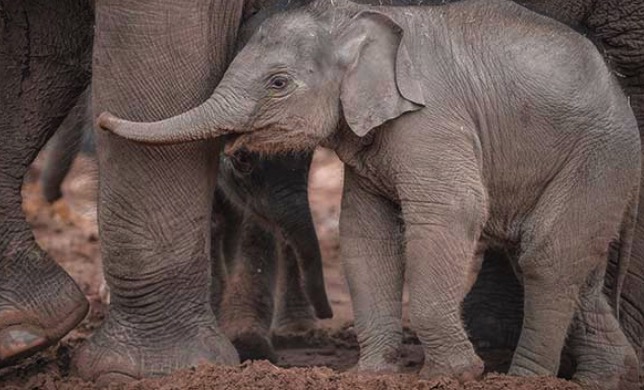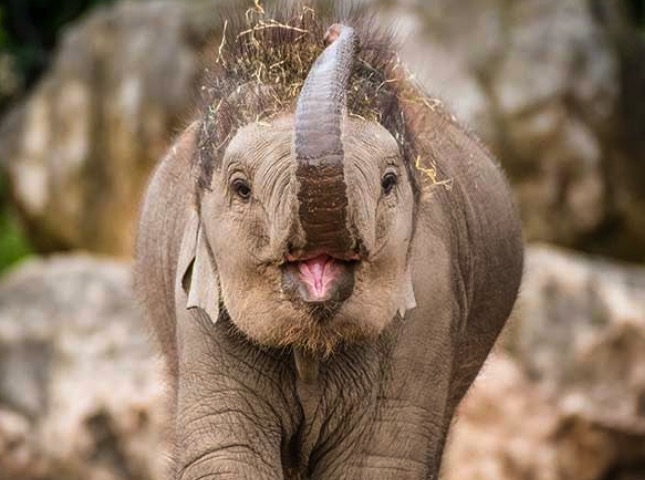Indali continues to battle deadly virus as Chester Zoo says latest results give cause to be ‘cautiously optimistic’

Chester Zoo has given an update on two-year-old elephant calf Indali Hi Way after being diagnosed with the life-threatening endotheliotropic herpesvirus (EEHV) nine days ago.
Experts continue to provide daily intensive care for the two-year-old calf the zoo said in a statement today.
The statement goes onto to says:
“The latest blood sample results give some cause to be cautiously optimistic as detailed analysis, carried out by world EEHV expert Akbar Dastjerdi of the Animal and Plant Health Agency (APHA), shows that the levels of the virus in her bloodstream have dropped in recent days, which may be good news.
During the onset of EEHV elephant calves become seriously dehydrated, however, Indali is keeping well hydrated, still eating and drinking regularly as well as spending time with her mum, Sundara.
Indali’s disease continues to be life-threatening though, and the teams are still regularly treating Indali with immune boosting drugs, anti-viral drugs, blood plasma and fluid therapy.
EEHV is an incredibly fast-acting and destructive virus which normally takes hold of a young elephant calf within days.
The fact that Indali has been fighting the virus for nine days is providing hope that the new detection methods and treatments available are giving much better chances of helping Indali pull through.
This is currently unchartered territory as we have never treated an elephant calf for this length of time before, and experts remain optimistic that Indali can fight off the virus.
The Hi Way family herd remain inside the zoo’s Elephants of the Asian Forest habitat – which is closed to public during this time – to ensure Indali is as comfortable as possible whilst undergoing treatment.”

Last October three-year-old Nandita Hi Way and 18-month-old Aayu Hi Way – two much-loved members of the zoo’s close-knit family herd of rare Asian elephants – both tested positive for the fast acting EEHV and died shortly afterwards.
EEHV is known to be present in almost all Asian elephants, both in the wild and in zoos across the globe, but only develops into an illness in some elephants.
The zoo is leading global efforts to find a vaccine for the disease, and is backed by new technology and science, developed following the tragic losses of other calves at the zoo to the complex virus.
EEHV is known to be present in almost all Asian elephants, but only develops into an illness in some animals – it is currently unknown why this is. The virus has led to deaths in eight countries across the Asian elephant’s wild range including India, Sri Lanka, Nepal, Thailand, Cambodia, Laos, Indonesia (Sumatra & Borneo) and Myanmar – as well as cases recorded in zoos and sanctuaries.
The virus is now one of the biggest threats to the long-term future of Asian elephants globally. Huge progress has been made in the fight to find a cure – with new potential vaccines being trialled in the near future that could solve the crisis for the species – but right now that battle is ongoing.
Spotted something? Got a story? Email: [email protected]
Latest News
